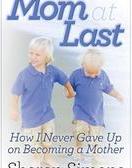After nine months of carrying a child, a new mother might be affected by moderate or severe depression. For the new mother and those around her, it might seem inexplicable; after all, she has just had a child and should be experiencing the joy of a lifetime, right? Wrong. Postpartum depression can plague a woman at any time during the first year after giving birth. According to the U.S. Department of Health and Human Services Office on Women’s Health, about 13% of new mothers suffer from postpartum depression.

How to Banish Those Baby Blues?
Feeling morose, experiencing a general sense of indolence, and perpetual enervation (thanks to loss of interest in erstwhile pleasurable activities), suffering from sleeping troubles, and having a general feeling of worthlessness are some of the symptoms synonymous with postnatal depression. Some new mommies may also experience more morbid, albeit fleeting thoughts of causing harm to their babies and committing suicide.
The risk of postnatal blues can be reduced by doing a few things before giving birth to the baby –
• Educate yourself over what pregnancy, childbirth, and eventual growth of the bundle of joy would entail. You can join a childbirth pregnancy class to acquaint yourself with what your “new” life would have in store for you.
• As a part of your pre-childbirth education, talk to other would-be and new mommies.
• Rest well and do not forget to indulge yourself with naps.
• Post childbirth, you may like to see a counselor who will help you change negative thoughts into positive ones, encourage you to take part in activities that you enjoy, and prevent depression from setting in again and pulling the reins of your life.
• In some cases, medications (anti-depressants) may also be prescribed to tackle depression. One caveat though – antidepressants can pass on to the baby through breast milk. It is important that you carefully appraise the pros and cons of antidepressants that you intend to take.
• Engage in some form of exercise, even if it’s for 20 minutes. Put on your favorite music and jive away those blues!
Postpartum Depression – It’s a Guy Thing Too
If the results of a 2010 research conducted by Assistant Professor James F. Paulson, Eastern Virginia Medical School, are to be believed, nearly a tenth of new dads suffer from postnatal blues. As in the case of new mommies, lack of sleep, tension in relationship with the partner, and reduced interaction with friends are some of the reasons that contribute to postpartum depression in fathers.
Tips on avoiding postpartum depression for men remain the same as for women. Talk it all out with a counselor and a buddy. Research studies also show that having a heart-to-heart with the child’s pediatrician helps ameliorate the condition. Be easy on yourself – after all, depression isn’t something that you can just opt to walk out of.
Surrogacy and Postpartum Depression
The dynamics of surrogacy make postpartum depression even more complex. In surrogacy, both the surrogate and the intending mother are subject to suffering from post-pregnancy blues. If you are weighing commercial surrogacy in India or any other medical tourism destination, make sure to discuss the ways to keep the baby blues away with your doctor.
The reason why both the mother and the surrogate are subject to postpartum blues is because the depression is due to both the circumstantial life transition of having a new child and the actual chemical imbalance that occurs in the body during child bearing and child birth.
Surrogate mothers in India and other womb-for-rent “tourism” meccas, who may have no previous link to the couple as well as the ones known to the intending parents should both be aware of the risks of postnatal depression. Any surrogate should visit a doctor if she has suffered from any of the following for more than two weeks any time in the year following child delivery:
• Restlessness or moodiness
• Often unexplainable, excessive crying
• Lack of motivation
• Difficulty in getting out of bed
• Change in appetite – either loss of appetite or indulgence in “comfort” eating
• Isolating one’s self from friends
In the case of a surrogate, postpartum depression usually happens because of:
• Genetic predisposition
• Change in brain chemistry
• Inability to adapt to life after pregnancy
• Dropped thyroid hormone levels
In the case of a surrogate who does not have personal ties to the couple or individual who are the child’s parents, postpartum depression can be worsened because of the immediate shock of being pregnant one minute and not the next, without having any interaction with the child.
In cases where the surrogate knows the couple, she may suffer from postpartum depression by interacting with the child she carried but is now out of her care. Younger surrogates are at higher risk of postpartum depression.
The New Mother’s Perspective
The new mother who is actually going to raise the child may suffer from similar symptoms. Some of the reasons for depression in new moms after the completion of the entire surrogacy process are:
• Change in life schedule
• Guilt for not having carried the child
• Fear of inadequacy as a mother
• Severe fatigue from sleepless nights because of the new child
• Genetic predisposition
• Sense of being overwhelmed with the responsibility of the child
Both the surrogate and the mother should take extra precaution in the first year after child birth. It is important to listen to your body and your emotions. Others around you may not understand your condition to be an illness; however, depression is a clinical problem that immobilizes an individual if not treated.
Seek medical counsel. There are many natural and medicinal ways to overcome postpartum blues. Talk with your medical professional to come up with a plan that’s best for you. Remember, your health is important not only for your own well-being, but also for the good of those around you.
About the Author

